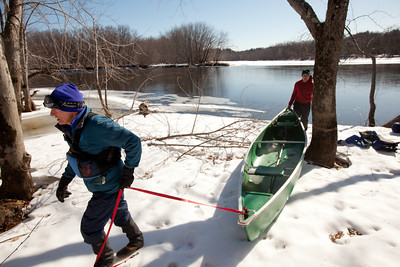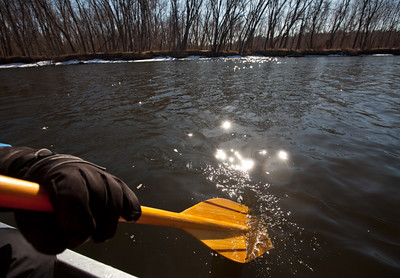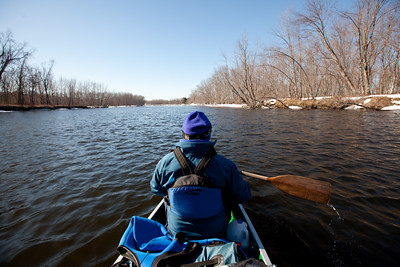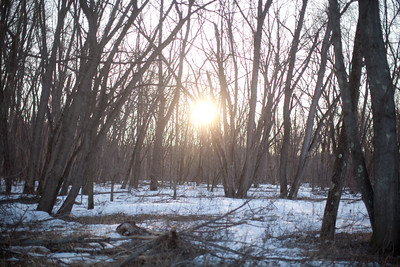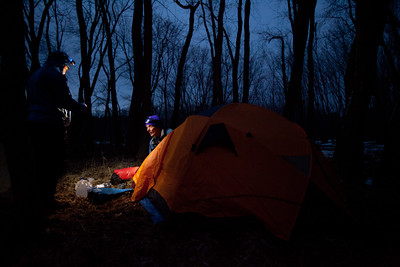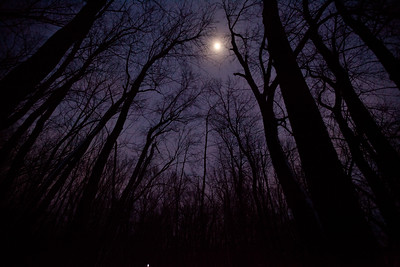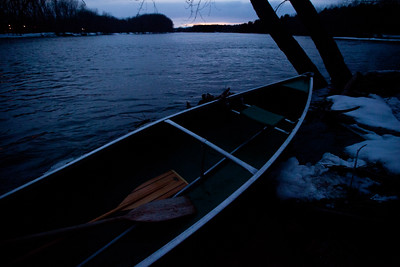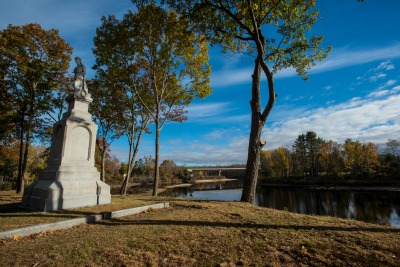Daniel Ford: Did you grow up wanting to become a writer or did the desire to write grow organically over time?
Dave Fromm: Both, I guess, though maybe not in the way you meant.
On the one hand, I was a reader when I was young and grew up wanting to be better at some of the things that “writers” seemed to do—to be imaginative, to create worlds, to express myself clearly, to be empathetic and clear-eyed and rational. I also had a childhood stutter, which, while mild, I was self-conscious about. It pushed me toward writerly observation, rather than engagement, in a lot of social situations. I don’t know if that actually made me want to write, but it seems like a nice vulnerable detail to mention.
On the other hand, I also wanted to be perceived as a writer by my adolescent peers, and especially by my female peers, because I thought it had some cachet value. Writers were obviously brooding and romantic. They had depth. I lacked a lot of things in adolescence, and depth was a big one.
Eventually, these dual tracks—the desire to develop some of the attributes that go into good writing and the desire to be perceived as a writer—came together and I figured I should start trying to write some things.
DF: Who were some of your early influences?
Fromm: Loudon Swain, Lloyd Dobler, Robin Hood, D’Artagnon, Michael Jordan, my parents. Not in that order.
Re: writing, my middle-school English teacher Elfrieda Pierce, my high school Humanities teacher Jim Hurley. I read a ton of fantasy as a kid: The Lord of the Rings, the Shannara knock-offs, Wrinkle in Time, Piers Anthony, Anne McCaffrey, etc. In high school, I liked Ragtime a lot, or at least I remember thinking I liking it. I won an award that came with a biography of William Faulkner but I still haven’t read it. A college friend gave me Fever Pitch, by Nick Hornby, and around the same time I was reading David Foster Wallace’s essays from A Supposedly Fun Thing I’ll Never Do Again and Michael Chabon’s debut novel The Mysteries of Pittsburgh, and I guess those three, each in different ways, sort of opened up the world of contemporary literature for me, writing that could be funny and honest and smart and gorgeous and take these complicated ideas and present them clearly. Written by people who were still alive, and were indeed not far from my own age. Also Padgett Powell’s Edisto stories.
DF: What is your writing process like? Do you listen to music? Outline?
Fromm: My writing process is disgraceful. I’m not very disciplined. I have two kids in elementary school, and since they’re there right now I will take the opportunity to blame them.
I do listen to music. For what it’s worth I listened to a lot of Bob Schneider and The Avett Brothers while writing The Duration. I don’t outline very well. It almost works in reverse—I’ll write a chunk and then try to diagram what I already have, and it’s usually a totally screwy diagram, it’ll look like a M.C. Escher diagram, with stairs going nowhere and a flock of birds, and then I’ll try to use that to make sense of what I’m trying to say.
When I can get sort of inspired by something, sometimes momentum will take over and I’ll have a really good run of weeks or months of writing at set times, or in pockets of time late at night or what have you, and I’ll be able to generate a bunch of stuff. That’s what happened when I wrote The Duration. I started it and stuck with it through the first 10,000 or 15,000 words, and then it started to roll and it was all I could think about. I’d even have dreams about it. When it was “finished,” I wrote a collection of nonfiction and a YA novel and then a movie treatment and I was like I am the baddest badass on the planet. I am a machine! And then I got off track and I haven’t really written anything good since early 2015, other than a couple of dope tweets and status updates. Part of it was the publishing process, doing edits to The Duration, building social media stuff, time spent working on something from the past to make it better rather than generating new stuff, even if that new stuff would invariably be crummy. And part of it was laziness.
But recently I got a story idea, and I am going to nurture that idea like a baby bird.
DF: How did you develop your voice? Are you able to slip into it during the writing process or is it something you find while you’re editing?
Fromm: I developed my voice by listening to myself talk and then asking myself, “What would this guy sound like if he was smarter and/or funnier?” I’m only half-kidding. In The Duration, the narrator sounds like a version of me, but a younger, wilder and more heartfelt version. He’s sort of angry and sort of fearful and covers it up with blustery adolescent humor. In this case that voice came pretty easily while writing and part of the struggle in the editing process was not to lose that voice while patching various holes in plot and motivation and stuff. I don’t know what will happen in the next novel, if there is a next novel. There’s an older novel, still in a file, with a main character who also has a voice like mine. It’s starting to feel creepy.
DF: What inspired The Duration?
Fromm: The Duration was partially inspired by a true story from my Western Massachusetts hometown about a touring circus elephant that died in the woods in 1851. The elephant, whose name was Columbus, was so big that the circus folks left him where he fell, and the woods quickly swallowed up the body. He’s never been found, although some folks are pretty sure they know where he is. The idea of this exotic secret buried in a small New England village, and of local kids looking for it, is sort of the first-level plot device in the novel.
The second-level plot device (what does that even mean? I don’t know) is about how certain formative childhood relationships—with close friends, with events, and even with an environment—stay with us our whole lives. How we never really lose them. I started writing The Duration shortly after my wife and I moved back to Western Massachusetts after seven years in California and I started reconnecting—painfully, joyfully, unsettlingly—with the touchstones of my youth.
DF: How much of yourself—and the people you have daily interactions with—ends up in your main characters? How do you develop your characters in general?
Fromm: I don’t know. A lot, probably. I mean, you work with what you have, what you can feel, right? You steal little pieces here and there. A guy has a great nickname, a woman has a funny habit that suggests something about her inner life. I’m lucky enough to be surrounded by people who are smarter and funnier and more interesting than I am, so I borrow a lot. It’s tricky, though, because whenever you use a real-life detail in fiction, the person whose real-life detail it is is implicated, even if the character goes in an entirely different direction.
But, I mean, isn’t every character a version of the author? Even the bit players?
As far as development goes, I guess I try to figure out who I need, what function each character plays, and then try and imagine them as real people. I read something that the writer Steve Almond said once about loving your characters, and I guess that’s not, like, mind-blowingly original advice, but it’s always helped me when I’m working out a scene, to try to empathize with each character and their inner motivations for doing something, so that they become more than just devices. On that front, a helpful exercise has been writing nonfiction pieces and then sending them to the people mentioned in them for editorial feedback. I had a few essays about high school girlfriends and the process of sending the essays to them for review was really helpful in terms of seeing multiple perspectives. Also, terrifying.
DF: How long did it take you to write The Duration and what was your publishing journey like?
Fromm: I feel like I’m still writing it, or I would if I could. I’m glad it’s out of my hands.
The initial drafting process was relatively quick, maybe six months? After that, I sought feedback from a few writing friends, which necessarily takes a while because you can’t just drop a first draft in someone’s lap and be like get back to me in a week? They have their own lives and their own work and all that. But they gave me some really helpful feedback, then my agent did, and then we submitted to publishers. That process also takes a while, and the whole time you’re thinking “no news is good news, right?” But not always. Maybe a year went by? I didn’t have much success with the larger publishers and after a while I just started asking my more successful writer friends what their publishing experiences had been like. One of them, Jim Ruland, had recently published a wonderful debut novel called Forest of Fortune with a smaller publisher called Tyrus Books. He recommended them highly, but they were closed for submissions. So Jim actually emailed the publisher to see if they’d be interested in taking a look at my story. Obviously I’m naming all my future children after him.
Once I hooked up with Tyrus, the publishing journey was smooth sailing. They’ve been great—organized, encouraging, responsive, personal, and really sharp. I feel like I’ve lucked out at every turn.
DF: Most of the authors we talk to prefer to leave the discussion of themes to their readers, but were there any specific themes you wanted to explore while writing the novel?
Fromm: Well shit, now I feel like I should leave the discussion of themes to my readers too. But there’s probably only going to be, like, 10 of them, and I feel like I’ve already asked too much of them anyway.
I wanted to explore the sort of continuity that develops for people at a time and a place. In my case, the continuity is with the area I grew up in and the people I grew up with. It’s more than friendship, it’s a sort of kinship and sense of belonging, for better or worse. My characters, like the town they return to, carry and are nourished by the ghosts of the past and have to figure out how that translates into their ability to go forward, to go on.
DF: Now that you have your first novel under your belt, what’s next for you?
Fromm: I’m shopping something right now that’s a real departure from The Duration, so it doesn’t exactly feel like a “next” thing, but fingers crossed. It’s YA-ish, I guess. A story about an orphan girl who discovers that her grandfather was the last in a long line of pirates and sets out to return his ill-gotten loot. I wrote it for my daughter, who’s only five now but will someday be forced to read it. I’m also starting to work on this new idea, which, at least today, has something to do with a middle-aged guy who starts to fear the approach of some metaphysical enemy, so he takes up CrossFit. It’s fiction.
But first I’m driving out to Monson to pick up some beer.
DF: What’s your advice to aspiring authors?
Fromm: Oh, man. So leery of offering advice because, like, what do I know? Focus on being a writer and don’t worry about being an author? That’ll come, or it won’t. You probably won’t make much money, so if you need that maybe go a different way professionally? But don’t give up? Is that too cliché? Keep working, keep being a decent and generous human being. Engage with the world? Do dumb shit. Read whatever you like to read? Question your motivations? Believe in karma? Make good friends?
DF: Can you please tell us one random fact about yourself?
Fromm: I hate eggs.
To learn more about David Fromm, visit his official website or follow him on Twitter @dfro.






